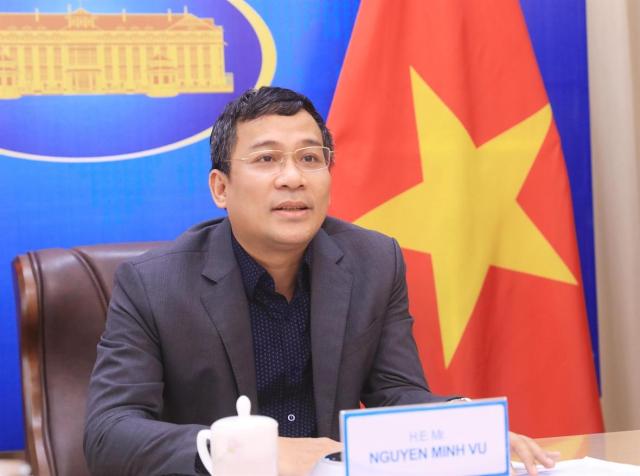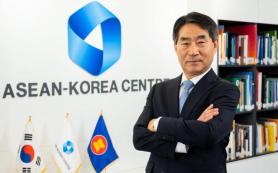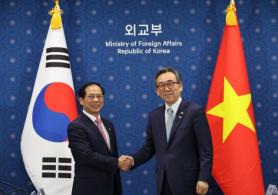
To coincide with Chinh's visit here and gain insights into the deepening cooperation between the two countries, Aju Press had a written interview with Nguyen Minh Vu, deputy minister of foreign affairs of Viet Nam.
Vu started his interview by stressing that the CSP has brought the biliteral relationship to "a new dimension." He explained Chinh's visit to Korea this week aims to further develop this partnership, "bringing tangible benefits to both countries and contributing to regional and global peace and stability."
"After over 30 years of diplomatic ties, the relationship between the two countries is now at its pinnacle," he said. "The biliteral relationship will continue to develop more substantially and effectively under the CSP framework."
Vu also elaborated on how the two countries have increased mutual exchanges and cooperation across various sectors. He highlighted that Korea is Viet Nam's largest foreign investor, accounting for 18 percent of the Southeast Asian country's foreign direct investment. He also emphasized the thriving tourism sector, saying that over 4 million travelers visited between the two countries last year. And over 1.6 million Koreans traveled to Viet Nam in the first four months of this year alone, accounting for 25.8 percent of Viet Nam's total international arrivals.
"We seek to enhance cooperation with Korea in various fields including artificial intelligence, biotechnology, renewable energy, semiconductors, and agricultural technologies," he said.
He also welcomed the Seoul's adoption of the Korea-ASEAN Solidarity Initiative (KASI) as part of its Indo-Pacific strategy in 2023 to strengthen ties with the bloc.
"KASI demonstrates Korea's commitment to strengthening ties with ASEAN countries," he said. He then emphasized that Viet Nam has closely collaborated with Korea and ASEAN countries in implementing the KASI since July 2021, fostering regional growth and cooperation through various programs, projects, and activities.
"We believe its effective implementation of the KASI will contribute to strengthening Korea’s role in the region, promoting cooperation between ASEAN countries and better addressing regional and global security challenges," he added.
Copyright ⓒ Aju Press All rights reserved.




